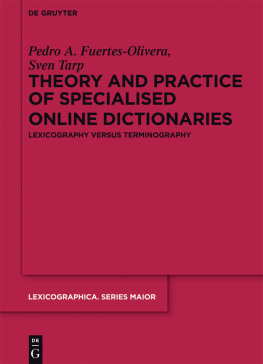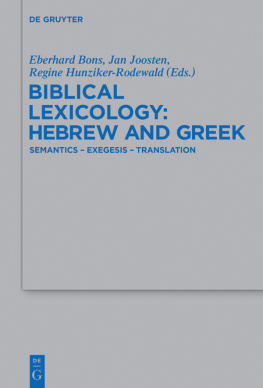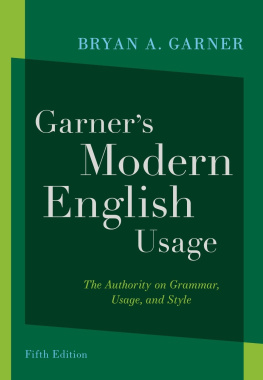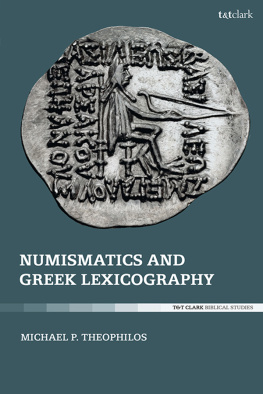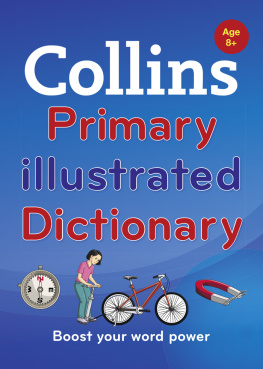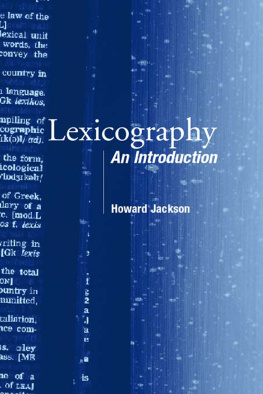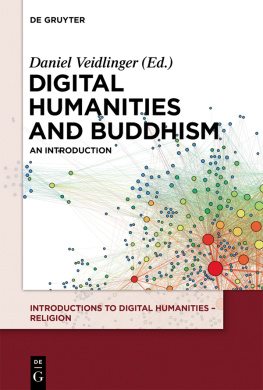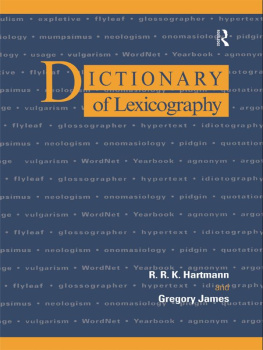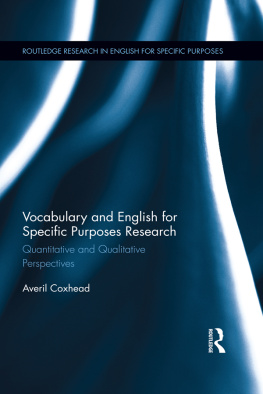1 Introduction
Something is rotten in the Kingdom of Lexicography. For more than two hundred years this millenarian cultural practice has suffered from a schism which is becoming still more absurd in the light of our modern information society.
In 1704, one of the pioneers of British specialised lexicography, John Harris, wrote a preface to his English Dictionary of Arts and Sciences . Here he explained that he did not aim only at including words but also things in this work; his users could not simply expect to find explications of the terms of art but also those arts themselves, i.e. the crafts and sciences as they were developed in the early 18th century.
Forty-five years later, the British economist Malachy Postlethwayt (1749) published a small booklet in which he told his readers that he planned to reduce the knowledge of trade and commerce to the form of a dictionary, for alphabetical reference. His motive was that the people in need of such knowledge could not be expected to obtain it elsewhere, as it was scattered throughout many books. This vision materialised two years later in the first of four editions of his Universal Dictionary of Trade and Commerce , a specialised reference work which was rather influential in Britain and beyond in the mid and late-eighteen century.
Five years after the publication of Postlethwayt's booklet, the great French illuminist Jean le Rond d'Alembert (1754) wrote an article titled dictionnaire in the famous Encyclopdie which he edited together with Denis Diderot. Here he initially distinguished between three categories of dictionary: dictionaries of words, dictionaries of facts, and dictionaries of things. His concept of dictionary of things was more or less the same as the one used by Harris fifty years earlier; it should not be confused with the concept of encyclopaedia which was explained the following year in a separate article written by Diderot (1755).
For the great thinkers who preceded our poque there was no doubt that dictionaries were more than just books of words. They were also practical tools that could be used to describe and promote science and progress.
However, only one year after d'Alembert's article on dictionnaire , Samuel Johnson published his Dictionary of the English Language , a milestone in British lexicography. Nobody can ever take away Johnson's merits. But it is nevertheless surprising to compare his definition of dictionary with the ideas expressed above: A book containing the words of any language in alphabetical order, with explanations of their meaning; a lexicon; a vocabulary; a word-book. Here, Samuel Johnson works with a much narrower concept than other authors from the same century. In his view, a dictionary is apparently only about words. The things i.e. the content of arts, sciences and crafts emphasized by some of his contemporaneous, seem to be completely ignored by the father of British lexicography.
From then on, a vision of lexicography as being a discipline or craft dealing exclusively with words has taken still deeper roots among one group of lexicographers. Today, this group even consider their profession to be a branch of linguistics or something similar. The other group of dictionary makers dealing also with the lexicography of things is ignored or looked upon as intruders or strange fellows.
This other group, however, has not been impressed by their colleagues narrow vision of the joint discipline. They have continued in the footstep of their great precursors and have produced marvellous specialised dictionaries of various sorts during the past centuries and also a number of not so marvellous ones. In fact, they have been so busy doing so that Leroyer (2011) has calculated that about three quarters of all dictionaries published in 2008-2009 are specialised dictionaries of one type or another.
To this, Kilgarriff (2012) has responded that these dictionaries do not have as many readers as general-language dictionaries and, hence, are not so important. The British lexicographer even compares the two groups of dictionaries with airports, the ones in which he himself is engaged being international airports and the others being local airstrips. Here the old schism is once more reproduced: on the one hand, we have the lexicographical Heathrows and, on the other hand, the provincial stuff . Cecil Rhodes could not have expressed it more clearly.
It cannot be denied that specialised dictionaries are most often not honoured with the same number of users as their general-language counterparts, and that general dictionaries of English, in particular, have a much bigger group of potential users. However, the importance of specialised dictionaries in society should not be ignored either. In many aspects, they play a crucial role in economic and social life, in business communication, education, research, and the dissemination of science and knowledge.
It is, therefore, not surprising that the 20th century saw a growing body of academic literature related to this branch of lexicography. Especially in the late 1980s and early 1990s, there was a marked interest in the more theoretical aspects of specialised dictionaries. Among the works published in that period was the Manual of Specialised Lexicography (1995). This manual is up to now the only one of its kind and still frequently quoted by many scholars engaged in specialised lexicography. It is, however, a heterogonous work which in various aspects is outdated. It was based upon the lexicographical function theory originally developed by researchers at the Aarhus-based Centre for Lexicography but written in a moment when this theory was still in a process of being elaborated.
Since then, collaborators from the Centre have participated in more than hundred finished dictionary projects, both general and specialised ones, most of them online. The experience from all these practical projects has been of enormous importance to the continuous development and refinement of the function theory, adapting it to the world of the new technologies. In recent years, the growing collaboration with the Valladolid-based International Centre for Lexicography has further enriched the practical experience and contributed to the theoretical development. It is, therefore, logical that two researchers from each of these Centres have decided to join together and share their experience, knowledge and ideas with the rest of the community.
The book deals with various aspects of specialised lexicography: the discipline itself and its academic status; the function theory and the various arguments against it; competing theories, especially those of terminography; various aspects of methodology; special problems related to online lexicography; and criticism of a number of existing specialised online dictionaries. Finally, the ideas put forward are exemplified by means of a detailed description of a specialised dictionary project from the planning phase to its publication, as well as recommendations for other types of specialised dictionaries.
The book should not be considered the last word in this respect. Specialised lexicography both as a theory and a practice is under constant development. Many aspects have still to be analysed, new problems and challenges are continuously appearing, and solutions have to be found to all of them, the new as well as the old. With the publication of the book, we hope to have taken a relevant step forward, providing ideas and inspiration to other scholars interested in this field of human activity and knowledge and to people interested in lexicography in general. By saying this, we also hope to have taken steps to end the senseless schism which has reigned in the discipline far too long. Our vision of lexicography is inclusive. Different approaches and confrontation of ideas should be viewed as normal and healthy phenomena within any discipline aspiring to make further progress. But attempts to exclude, ignore or denigrate an important part of the discipline, with whatever excuse, have no place in such a democratic culture.

